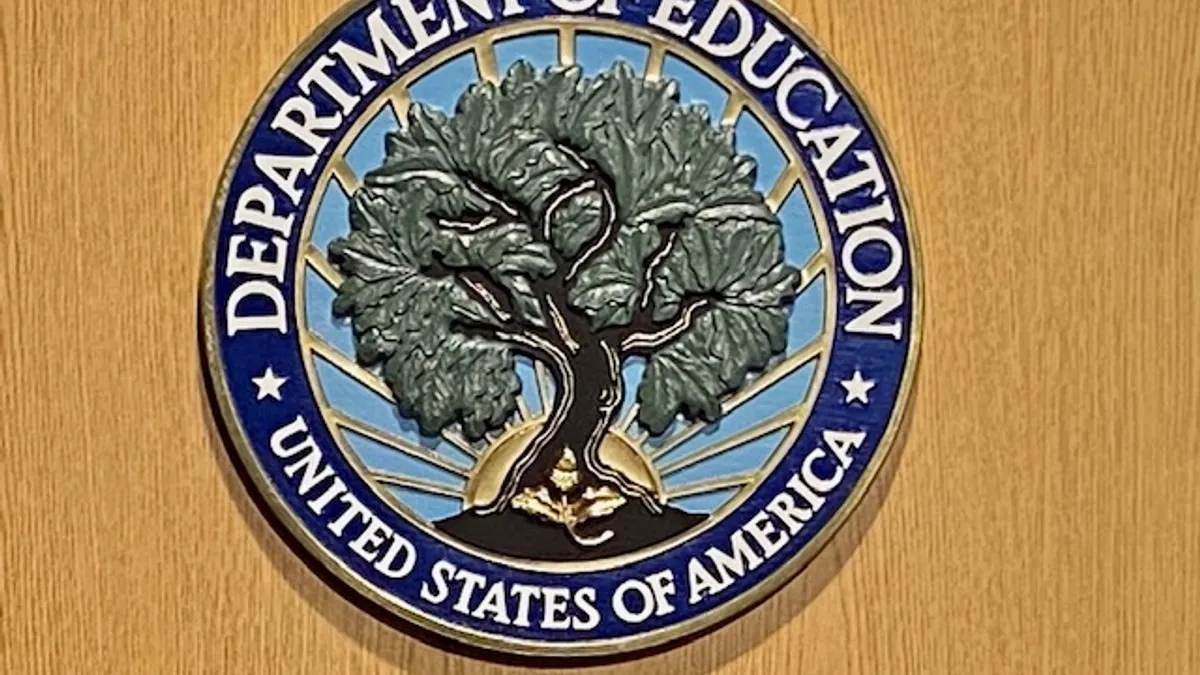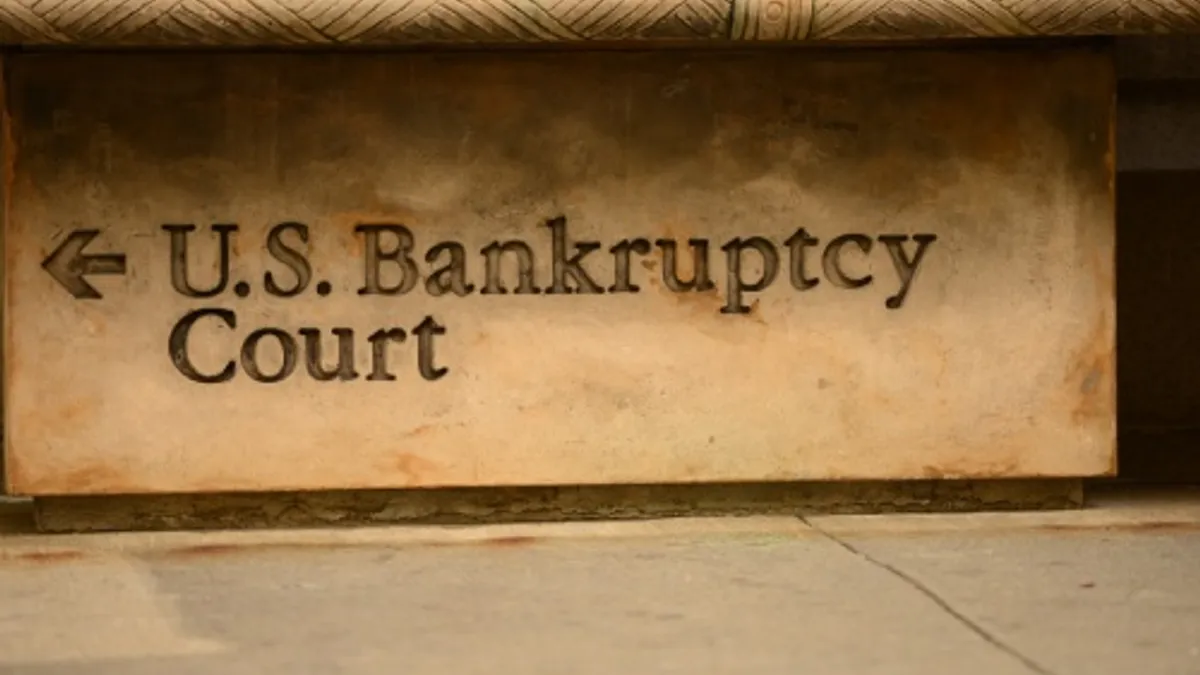Acknowledging widespread concern from colleges, contractors and associations, the U.S. Department of Education is pushing back by four months — until September — the start date for a broadened definition of organizations that are third-party servicers under federal financial aid programs.
Third-party servicers are entities that administer any part of colleges' Title IV federal financial aid programs. Being defined as a third-party servicer comes with additional regulatory requirements, like compliance auditing. Third-party servicers are also jointly liable for violations of federal student aid regulations.
Feb. 15 guidance from the Education Department expanded the types of organizations covered under regulators' third-party servicer definition. A letter outlining the new guidance in part framed it around online program managers, or OPMs, whose ability to make money through revenue-share agreements with colleges is the subject of a separate regulatory review announced the same day.
But the department also wrote that for third-party servicers, "most activities and functions performed by outside entities on behalf of an institution are intrinsically intertwined" with Title IV programs. It revised guidance to state that parties involved in student recruiting, retention, software for Title IV administration, educational content and instruction count as third-party servicers and as such need to comply with regulatory requirements.
The changes set off a slew of questions about just how broad the new guidelines actually are — and how quickly they were being put in place.
Observers suggested the new definition could cover as third-party servicers companies that provide learning management systems or even textbook publishers. Also potentially included are organizations like police departments that compile crime statistics for colleges, hospitals that offer clinical experience, and colleges' online extensions that work with campuses, according to the American Council on Education, the higher ed sector's top lobbying organization.
D2L, the company that sells the popular Brightspace learning management system, even put out a statement assuring customers that it doesn't think it counts as a third-party servicer under the new definition.
"The Department’s announcement is ambiguous, and whether the guidance is compatible with the existing definitions of TPS under the [Higher Education Act] and the Department’s own regulations is, at the very least, debatable," it said. "However, D2L is confident the learning management system it provides to U.S. institutions is not captured by the new guidance."
Initially, the Education Department said colleges would need to report newly covered third-party servicer relationships by May 1. It also asked them to submit comments on the changes by mid-March.
But on Tuesday, the department said the new guidance and reporting requirements won't be effective until Sept. 1. It extended the comment period until late March.
"The Department wishes to ensure that eligible institutions and third-party servicers have a clear understanding of the requirements for third-party servicers and a reasonable amount of time to comply with those requirements," the updated guidance says.
Why colleges wanted more time
The new guidance is sprawling. The letter announcing it spans more than 8,000 words, including a Q&A and a table outlining services that could make contractors qualify under the new definition.
Also, an organization that meets the definition of a third-party servicer for one institution might not meet it for another.
"The Department has observed that providers often offer multiple versions of a product or service and frequently customize a product or service based on an institution’s unique needs," the letter says. "It is possible for an entity to be considered a TPS in relation to one institution and not for another, depending on the specific services or functions that the entity performs for each institution."
Lawyers have also flagged a provision in the new guidance stating colleges can't contract with third-party service providers outside of the U.S. or providers "owned or operated by an individual who is not a U.S. citizen or national or a lawful U.S. permanent resident.”
Higher education groups warned colleges to evaluate their external contracts and send comments to the Education Department about the new guidelines. But they balked at the May deadline for colleges to report their third-party servicer contracts.
ACE sent a letter to the Education Department Thursday asking for more time. Forty-six other higher education interest groups and associations, including accreditors, cosigned it.
The May 1 deadline didn't provide enough time for institutions to review their contracts, comment, and comply with the new guidance, ACE President Ted Mitchell wrote.
"To meaningfully comment on the guidance and its implications, colleges and universities will need time to conduct an in-depth and individualized review of each and every contract or relationship with an outside entity — which, at some institutions, could number in the hundreds — to determine whether the entity meets the [Dear Colleague Letter's] expanded definition of a TPS and what operational or other impact that determination has from a policy perspective," Mitchell wrote.
The Education Department is pledging to carefully review all public comments it receives on the new guidance, according to a spokesperson.
"We are extending the deadlines under this letter and will continue to work with colleges to ensure the requirements are clear and that they have ample time to meet reporting deadlines," the spokesperson said Tuesday in an emailed statement.






















